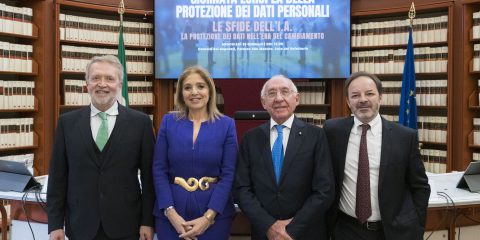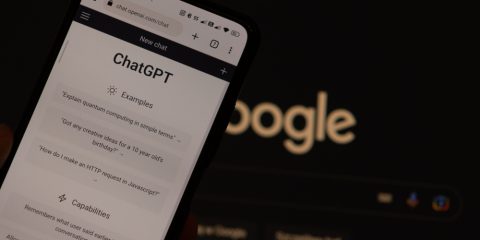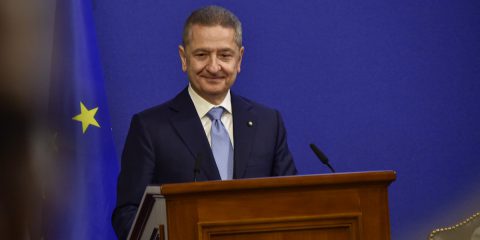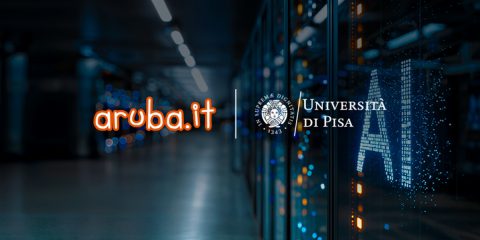Italia
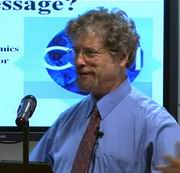
Pubblichiamo di seguito l’intervento di Eli Noam – Professore, Columbia University) all’evento ‘Beyond Dubai: A New Global Agenda for the Internet’, organizzato da Alleanza per Internet e tenutosi a Roma nella Sala delle Conferenze internazionali del Ministero Affari Esteri.
Beyond the Internet
It’s an early morning here in NY, it’s snowing, it’s cold. And it is therefore easy to think about the vivid image given by some people, of a digital cold war. A digital cold war that will follow Dubai.
A digital cold war in which different countries and regions will operate under different internet rules.
A digital cold war without an internet that works the same way around the world.
Are these people right?
Yes, unfortunately.
And I think that we must get used to the idea, that the uniform internet is the past but not the future.
And that the internet of the future is a federated internet, not a uniform one.
And I say this with much regret.
We have all been talking for a long time about digital convergence.
And yet here we are observing a digital divergence.
The past internet was based on a system created to a large extent by computer scientists, most of them in American universities.
It was based on a common set of values, a non-profit, sharing ideology, and a libertarian philosophy of minimal governmet. The decision process was one of rough consensus.
It was so successful that it became a key commercial and political and social infrastructure around the world.
At that point the interests of the different governments became too big to stay out of internet matters. And since governments around the world diverge widely their internet perspectives became too divergent to keep together.
And that’s not surprising at all. There are few things that we do the same way around the world. What is more surprising and unusual is that we had a uniform system at all.
So what we have seen in Dubai is the return to a normal, a dismal normal. And that is probably just the beginning of a fragmentation of the internet.
So there is an earnest effort to bridge these divergences. And thanks to all who are trying. And may they succeed this time. But the reality is that the world is a divergent place, and the internet is part of the world.
And this divergence will become even much worse as the internet becomes the platform for mass media, for television. Now, the interests and values of different countries and societies become still greater.
There is only so much agreement that is possible or acceptable or stable. It is hard to imagine agreement on fundamental internet issues of the US and, say, Iran. So either one disagrees, or creates an unsatisfactory and unstable compromise.
But even beyond divergent national ideologies and philosophies, there are corporate strategies that go in different directions. This can be best seen perhaps in the system of smartphones that are becoming the major tool for connectivity around the world.
Here, we have different coalitions emerging, centered around operating systems and proprietary app stores. Mobile operators, device makers, and app stores operate with varying degrees of openness and interoperability. Voice can operate across platforms, but apps often cannot. There is much more control, segmentation, and incompatibility than for the classic internet. And as more online activities will take place on those tablets and other mobile devices, why should it stop there? The same commercial logic of convenience, quality control, and end-to-end responsibility could apply also to proprietary ‘internets’ that are not mobile but fixed.
And thus, what is now a uniform system would evolve into a more diverse system, a federation or confederation of systems. An internet of internets.
So what can one do about it?
First, accept the inevitable.
Second, keep it as much as possible a system in which the engineers and not the politicians and government make decisions.
Third, keep a decision process for international arrangements, such as ITU principles, in which only those decisions are taken that have a broad international consensus. A bit like the security council. This might mean to stay fairly generic, but specificity will only lead to blow-ups.
None of this will be enough, but it might help.
But most of all, and fourthly, it is necessary to think about mechanisms that bridge the emerging regional and corporate-based internets.
We need to establish interconnection points,
Need to establish financial arrangements
Need to establish security arrangements
So how would one do that?
What is needed are intermediaries.
And those intermediaries are likely to be some of the ‘clouds’ and the ‘cloud providers’ that are emerging.
These are intermediaries that bridge non-uniform standards.
They also bridge different legal and regulatory environment in that they create compliance and enforce it, either on the incoming end, or on the outgoing end.
This intermediate sanitizing by such intermediaries is not a particularly desirable arrangement but it might still be better than others. And it is likely to merge. In some cases it will be about privacy. Or security. Or liability. Or any of the many others.
These kinds of cloud intermediaries will then be the glue that holds together the federated internet.
Most of them will be private, some will be public and governmental. The ITU could provide such a cloud.
And we should start thinking about how they can function and how many gatekeeping powers, and how much market powers, such intermediaries can have.
We must think about a federated internet. It is a creative opportunity and we can do it. Instead of banging our heads against the wall trying to achieve a uniformity which satisfies nobody, we should find arrangements where different arrangements can co-exist.
That should be the international agenda for the next years.
Thank you for being part of this important process.
#beyondWCIT: lo Speciale di Key4biz




